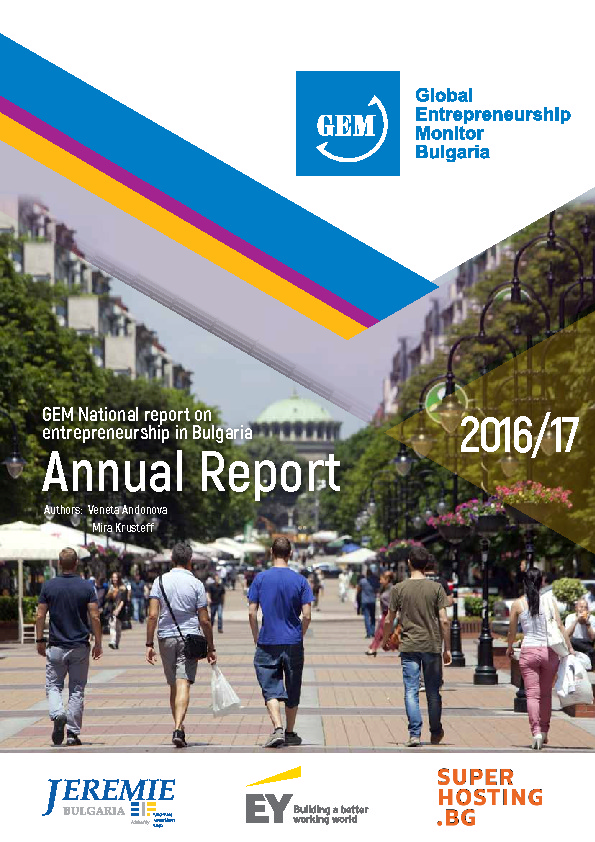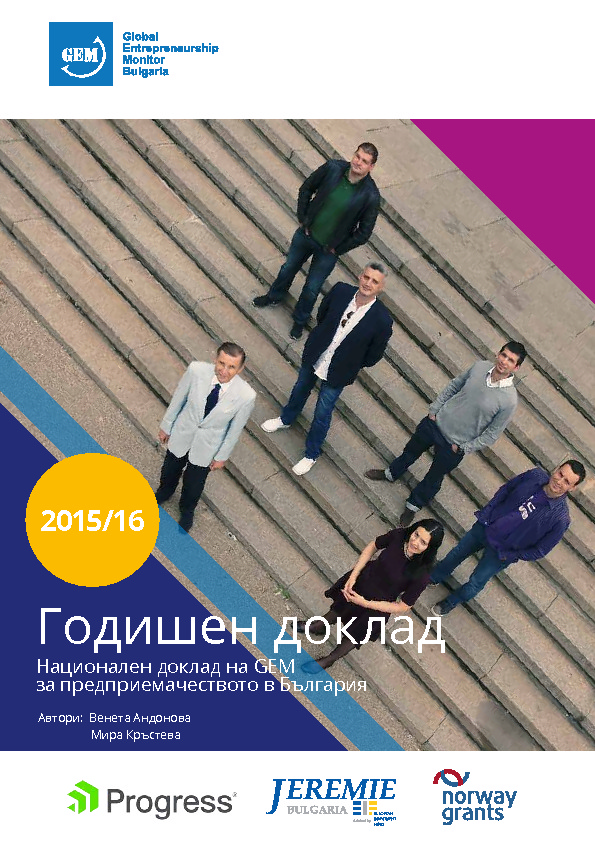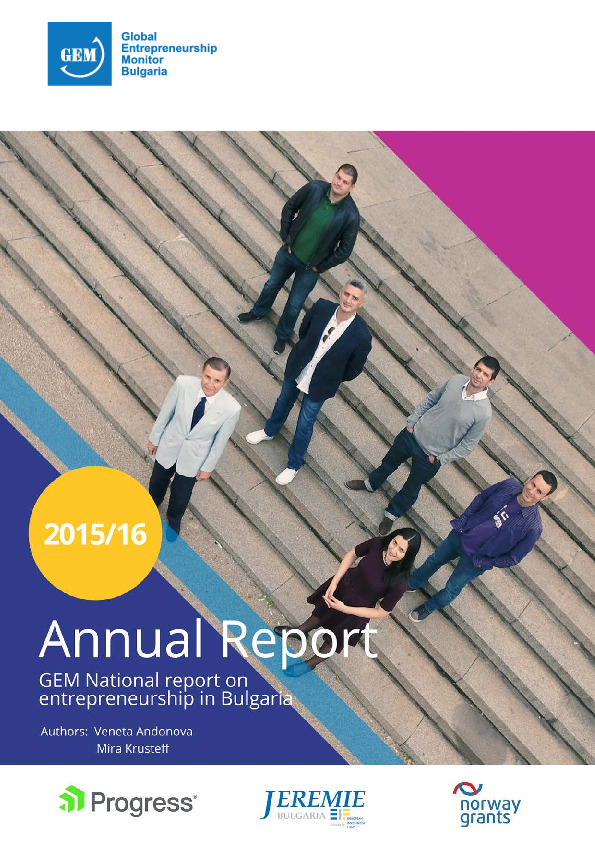Entrepreneurial Behaviour and Attitudes
- Bulgaria 2018
- Bulgaria 2017
- Global Average
- Regional Average
- Income Level Average
Self-Perceptions
-
1Perceived Opportunities Rate:Percentage of 18-64 population (individuals involved in any stage of entrepreneurial activity excluded) who see good opportunities to start a firm in the area where they live
-
2Perceived Capabilities Rate:Percentage of 18-64 population (individuals involved in any stage of entrepreneurial activity excluded) who believe they have the required skills and knowledge to start a business
-
3Fear of Failure Rate*:Percentage of the 18–64 population who agree that they see good opportunities but would not start a business for fear it might fail. NOTE: this is a percentage of those seeing good opportunities, and not the total adult population
-
4Entrepreneurial Intentions Rate:Percentage of 18-64 population (individuals involved in any stage of entrepreneurial activity excluded) who are latent entrepreneurs and who intend to start a business within three years
- 1. Perceived Opportunities Rate
- 2. Perceived Capabilities Rate
- 3. Fear of Failure Rate*
- 4. Entrepreneurial Intentations Rate:
Activity
-
1Total early-stage Entrepreneurial Activity (TEA):Percentage of 18-64 population who are either a nascent entrepreneur or owner-manager of a new business
-
2Established Business Ownership Rate:Percentage of 18-64 population who are currently an owner-manager of an established business, i.e., owning and managing a running business that has paid salaries, wages, or any other payments to the owners for more than 42 months
-
3Entrepreneurial Employee Activity Rate:Rate of involvement of employees in entrepreneurial activities, such as developing or launching new goods or services, or setting up a new business unit, a new establishment or subsidiary
- 1. Total early-stage Entrepreneurial Activity (TEA)
- 2. Established Business Ownership Rate
- 3. Entrepreneurial Employee Activity Rate
Motivations
-
1Motivational Index:Percentage of those involved in TEA that are improvement-driven opportunity motivated, divided by the percentage of TEA that is necessity-motivated
- 1. Motivational Index
Gender Equity
-
1Female/Male TEA Ratio:Percentage of female 18-64 population who are either a nascent entrepreneur or owner-manager of a 'new business', divided by the equivalent percentage for their male counterparts
-
2Female/Male Opportunity-Driven TEA Ratio:Percentage of those females involved in TEA who (i) claim to be driven by opportunity as opposed to finding no other option for work; and (ii) who indicate the main driver for being involved in this opportunity is being independent or increasing their income, rather than just maintaining their income, divided by the equivalent percentage for their male counterparts
- 1. Female/Male TEA Ratio
- 2. Female/Male Opportunity-Driven TEA Ratio
Impact
-
1High Job Creation Expectation Rate:Percentage of those involved in TEA who expect to create 6 or more jobs in 5 years
-
2Innovation Rate:Percentage of those involved in TEA who indicate that their product or service is new to at least some customers AND that few/no businesses offer the same product
-
3Business Services Sector Rate:Percentage of those involved in TEA in the 'Business Services' sector - Information and Communication, Financial Intermediation and Real Estate, Professional Services or Administrative Services, as defined by the ISIC 4.0 Business Type Codebook
- 1. High Job Creation Expectation Rate
- 2. Innovation Rate
- 3. Business Services Sector Rate
Societal Values
-
1High Status to Successful Entrepreneurs Rate:Percentage of 18-64 population who agree with the statement that in their country, successful entrepreneurs receive high status
-
2Entrepreneurship as a Good Career Choice Rate:Percentage of 18-64 population who agree with the statement that in their country, most people consider starting a business as a desirable career choice
- 1. High Status to Successful Entrepreneurs Rate
- 2. Entrepreneurship as a Good Career Choice Rate
Entrepreneurial Framework Conditions
Most recent data: 2018Expert Ratings: 1 = highly insufficient, 5 = highly sufficient





